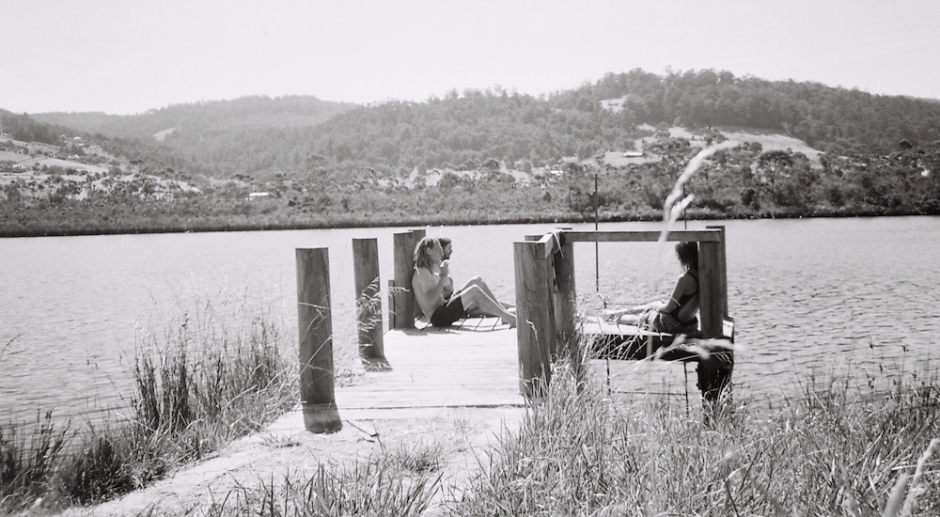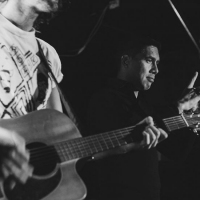 Music, Memories & Deafness: My Family's StoryPart one of a two-parter about coming to terms with hearing loss.
Music, Memories & Deafness: My Family's StoryPart one of a two-parter about coming to terms with hearing loss.

Rediscovering Human Decency When We Need It Most
Instead of pigeonholing people, it's time to start talking to them.
Header photo by Tom Wolff.
I stayed out of the US election race almost entirely. I did it for a number of reasons. Firstly, I felt that we Australians tend to overestimate the effect the US President actually has on our lives, that America’s soft power in this country – the power of persuasiveness through culture – was waning. I also felt as though it represented something closer to a soap opera than an election in a country that champions democracy. Being a bushwalking guide, I was able to exist outside the reach of daily media streams job – every time I returned to the modern world it felt almost futile and unnecessary to re-enter the repetitive, cynical world of economics and politics. Whatever my reasons, until Donald Trump became President I only reserved an occasional thought for the absurdity of a world in which a man who believes racism and misogyny are an integral part of any society would politically represent the United States of America.
But Trump is President, and it probably does matter. But not in the ways you might think.
I reckon we live in a society that is too preoccupied with narrow ideas of politics and economics and we spend an inordinate amount of time obsessing over them. Our situation dictates to us that ideas like human decency and the good in each of us are at best misguided, and at worst useless. It is true, politics and economics are everywhere. The politics of a café work environment – where people have to co-exist under pressure in a stressful environment – is just as complex as our systems of parliament. The farmer selling potatoes at the farmer’s market uses microeconomics in his everyday life. There are subtleties and nuances in the way people communicate and interact that could be analysed for days or weeks – much like the daily raucous debating of our politicians is. But they aren’t, and too many of us are left transfixed by the grandeur of contemporary national and international politics, with its pessimism and militant discourse.
Today I scoffed down lunch alone while staring aimlessly out the window as raindrops inaudibly collided with the pavement. A man pulled up in his car outside, being remarkably careful not to hit the front wheel of my bike – which I’d stupidly left protruding awkwardly out from the gutter – as he approached the kerb. As the man got out of the car his movement seemed laboured and he walked with a slight hunch.
He swung the boot open as a teenage girl appeared from behind the other side of the car, her hair streaked with a combination of pink and purple dyes. By the way the two interacted, I assumed this girl was the man’s daughter. She set to work at putting a pram together while her father reached in over the back seat to cradle a young baby in his arms. While exiting the car there was a noticeable tenderness with which he made each movement, which was precise yet fragile. Once the pram was assembled, he placed the baby down with the utmost care. The girl headed off along the footpath opposite direction and the man returned to his place at the driver’s seat. As open palms made contact with his cheeks, the contortions in the man’s face told stories of stress and fatigue.
Something inside me wanted me to walk outside and ask if he was ok. I didn’t. The man composed himself, pulled away from the kerb and drove out of my life –probably forever. I don’t know the first or last thing about that stranger’s life, about the complexities contained within his many years of lived existence. And I think that’s what’s wrong with the world today: we forget that fellow humans – people who we know not the faintest about – can’t be reduced to the simple things like political party they support, or the religion they follow, or their race or sexuality. We each have a wealth of experience and a unique world of complexities.
The breed of politics to which we divert so much attention – the actions of governments like our own or that of the US – affects the way we live to our own detriment. It bottlenecks people into identifiable groups and pits them against each other. I have very close friends who don’t necessarily share the same value set as me, and why would they? We rely on our own experiences and perceptions of the world to form these values – our lives are far from the same, so why would or value sets be identical? The beauty lies in our ability to accept difference and diversity. To move above what separates us and search for the common ground. That is how successful communities function. If the practice of contemporary politics and economics reflected a search for common ground among the population, our democracy could actually achieve progress with the big problems that face our world in the future.
Human decency is necessary on many levels. It is vital on a level that recognises our refugee policy as inhuman; or that wealth of Indigenous perceptions and understandings of our world is chronically undervalued. Issues that, unfortunately, exist predominantly in the political and economic sphere. But human decency is also necessary on a level that promotes understanding and empathy when a friend or relative thinks asylum seekers are “jumping the queue”. We are quick to jump the gun and blast someone away with our strident – and often self-righteous – beliefs. But that’s not where hope lies. Hope lies in realising that there’s a vast spectrum of experience and understanding. We can’t demonise people purely for their political views – since when did shouting matches achieve anything? The only way to foster positive change is to have an open dialogue that is accepting of all points of view, in an effort to create a broader understanding of the issues we face.
A Trump Presidency is powerless to divide people who are united in their understanding. There’s a lot wrong with the world today. Who said that can’t change?
 Music, Memories & Deafness: My Family's StoryPart one of a two-parter about coming to terms with hearing loss.
Music, Memories & Deafness: My Family's StoryPart one of a two-parter about coming to terms with hearing loss.
 Musicians 4 Hearing & Deafness In The Music IndustryJust because you can't hear doesn't mean you should be excluded.
Musicians 4 Hearing & Deafness In The Music IndustryJust because you can't hear doesn't mean you should be excluded.